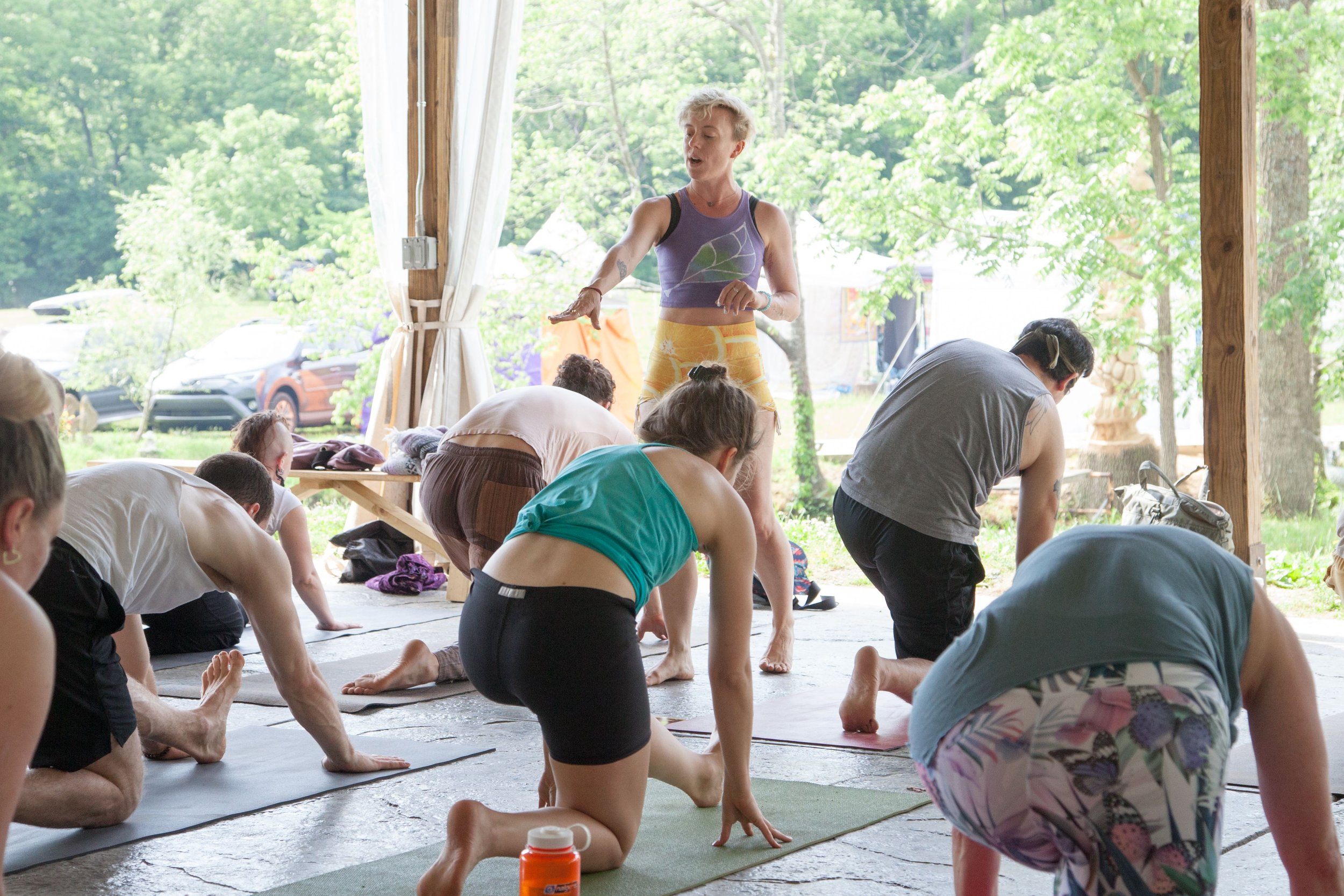
Frequently Asked Questions
Do I need to be flexible to start a yoga practice?
Absolutely not! In fact, wanting to improve your mobility and flexibility is wonderful reason to begin a yoga practice. Personally, I am not a naturally flexible person. We are all uniquely built, and each of us begins yoga with different poses that can challenge us and cause discomfort. Developing flexibility is something that occurs gradually over time and shouldn’t be forced. One of the most amazing, subtle benefits of yoga is that it develops more body awareness. This awareness and connection help us to listen to our bodies, learn to distinguish between pain and discomfort, and when to push ourselves or to back off. It also teaches patience! It takes a lot of patience to open up parts of our bodies where we hold tension, have past injuries, or haven’t utilized frequently.
Is yoga a religion or spiritual practice?
Yoga is not a religion. It can be a spiritual practice, but it doesn’t have to be. You can apply whatever your own spiritual beliefs are to your yoga practice, or it can be purely done for the physical/mental benefits. My yoga and meditation practice are a big component of my spiritually and have helped me to explore and develop that part of my life. Through yoga history, philosophy, principles and wisdom there is a breadth of information that can help lead you on your spiritual journey if you wish to explore it!
Is yoga a stand-alone practice or one that can be combined with other types of exercise or training regimens?
In my experience, yoga can be done purely by itself or as cross training for other types of exercise. Meaning it can help you improve anything from your golf swing to recovery after lifting weights or running. Yoga helps to improve both strength and mobility. It even improves focus and concentration. Yoga can be done alone, and I have gone through periods where it has been my main or even sole form of exercise. Sometimes solely focusing on your yoga practice, helps you to develop in your practice more quickly, than when you are engaging in other types of fitness. But I love that it gives me more ease and grace in all the activities I like to engage in, from hiking to roller skating or even simply doing household chores. I have taught yoga to triathletes, college football players, cross fitters, ice skaters, gymnasts, ballet dancers, tennis players, cyclists and many more. All have noted how yoga has supported and improved their other ventures.
Does yoga improve mental health?
As a mental health therapist, I could go on and on about the benefits of yoga on mental health. Simply learning how to breathe more consciously helps us to manage stress and anxiety off our yoga mats. Yoga utilizes a lot of grounding techniques, which also helps when we are feeling overwhelmed or going through transitions. We tend to hold a lot of emotional pain and trauma in our bodies, and research has shown that yoga can help us to release and heal. Yoga is wonderful treatment for ADHD, or to counter all our screen usage, because it improves our concentration and focus. Yoga is empowering and helps to build self-confidence, which in turn can also improve body image. A consistent practice has also been shown to improve mood, to prevent bouts of depression or even to work through seasonal depression.
Should I work with a variety of yoga teachers or with one?
When first starting a practice, I think it is wonderful to explore all the different types of yoga and the abundance of different teachers you have access to. It is also important to develop consistency of routine, and that may involve finding a few yoga classes a week that are going to fit in your schedule. There are going to be different teachers that really speak to you and inspire you. I do think as your practice develops; it is helpful to work with 1-3 teachers consistently. Working with a teacher long term and developing a relationship, can help with accountability and they can help guide you on your journey. Even as a yoga teacher, I think it is important to always have a consistent teacher in your life. There is always more that we can learn, and I think we should continuously take the seat of the student.
Connect with Lee
Thank you for taking the time to explore my website! I would love to connect with you to answer any questions. Please reach out to me via email or Instagram:
Love and light,
Lee
My email is leemarieyoga@gmail.com

